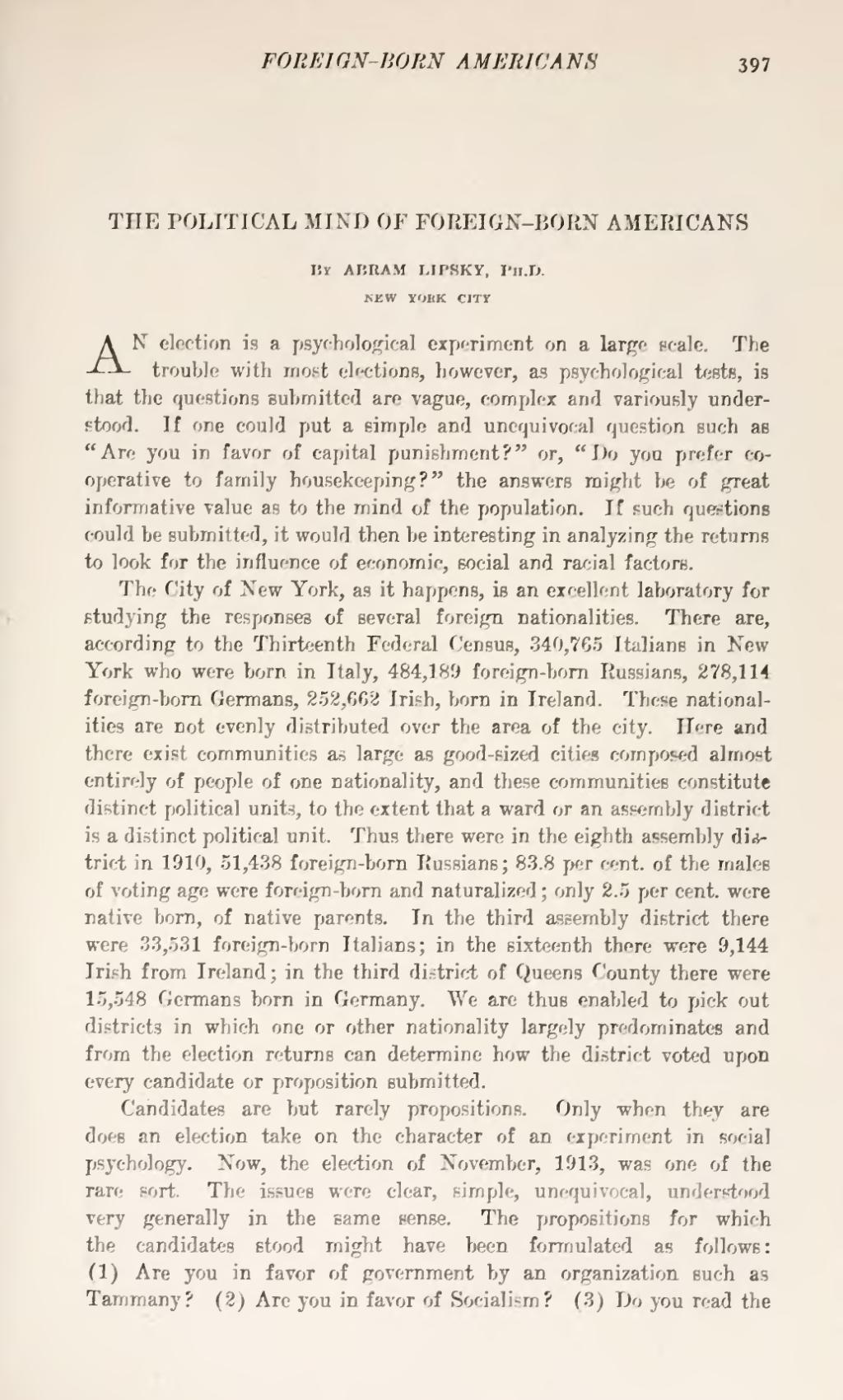| THE POLITICAL MIND OF FOREIGN-BORN AMERICANS |
By ABRAM LIPSKY, Ph.D.
NEW YORK CITY
AN election psychological experiment on a large scale. The trouble with most elections, however, as psychological tests, is that the questions submitted are vague, complex and variously understood. If one could put a simple and unequivocal question such as "Are you in favor of capital punishment?" or, "Do you prefer cooperative to family housekeeping?" the answers might be of great informative value as to the mind of the population. If such questions could be submitted, it would then be interesting in analyzing the returns to look for the influence of economic, social and racial factors.
The City of New York, as it happens, is an excellent laboratory for studying the responses of several foreign nationalities. There are, according to the Thirteenth Federal Census, 340,765 Italians in New York who were born in Italy, 484,189 foreign-born Russians, 278,114 foreign-born Germans, 252,662 Irish, born in Ireland. These nationalities are not evenly distributed over the area of the city. Here and there exist communities as large as good-sized cities composed almost entirely of people of one nationality, and these communities constitute distinct political units, to the extent that a ward or an assembly district is a distinct political unit. Thus there were in the eighth assembly district in 1910, 51,438 foreign-born Russians; 83.8 per cent, of the males of voting age were foreign-born and naturalized; only 2.5 per cent, were native born, of native parents. In the third assembly district there were 33,531 foreign-born Italians; in the sixteenth there were 9,144 Irish from Ireland; in the third district of Queens County there were 15,548 Germans born in Germany. We are thus enabled to pick out districts in which one or other nationality largely predominates and from the election returns can determine how the district voted upon every candidate or proposition submitted.
Candidates are but rarely propositions. Only when they are does an election take on the character of an experiment in social psychology. Now, the election of November, 1913, was one of the rare sort. The issues were clear, simple, unequivocal, understood very generally in the same sense. The propositions for which the candidates stood might have been formulated as follows: (1) Are you in favor of government by an organization such as Tammany? (2) Are you in favor of Socialism? (3) Do you read the
